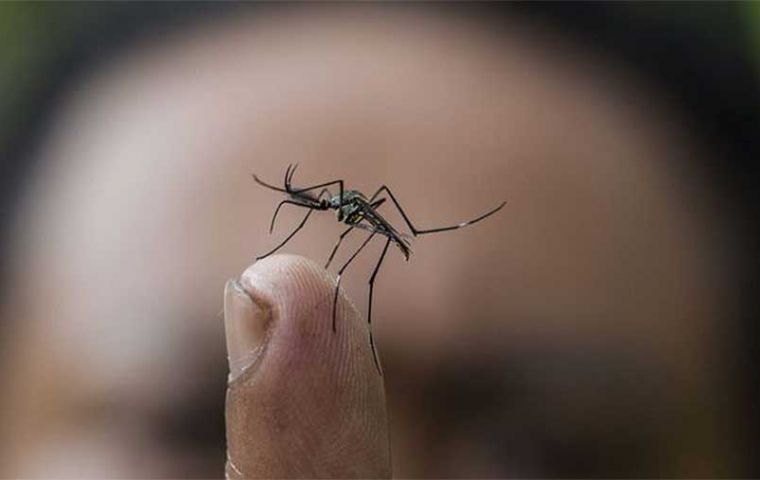MercoPress. South Atlantic News Agency
Cases of dengue in mainland Chile are all imported
 Autochthonous cases were only recorded in Easter Island
Autochthonous cases were only recorded in Easter Island Chilean health authorities said that dengue fever was on the rise nationwide last week, now totaling 228 confirmed cases, none of them autochthonous (patients with no recent travel history) in Chile's mainland. Nevertheless, local experts underlined that the Aedes Aegyppti mosquito was present in the country as a result of weather abnormalities stemming from climate change.
Up to epidemiological week 16 ending on April 20, 282 cases of dengue were confirmed in Chile, 185 of them imported, while the other 97 were autochthonous on Easter Island, Epidemiology Department head Christian García said at a press conference. In 2023, only 90 cases were recorded in Chile. The new data “is a reflection of what is happening in the Americas,” the Health Ministry's official argued.
The director of the Department of Microbiology of the University of Talca, Olga Lobos, told Xinhua that Easter Island was an endemic area for the transmission of the disease in Chile since the reappearance of the mosquito in 2000. ”In Chile, the only endemic area of transmission is Easter Island, however, there are risk areas due to the presence of the mosquito that transmits the disease in cities of continental Chile such as Arica, Iquique (north), and Los Andes of the Valparaiso region (center),“ she said while warning t5hat the mosquito ”could spread, as long as the climatic conditions were appropriate for its reproduction and, in addition, the prevention and control measures promoted by the health authority were not complied with.“
Patricia Poblete, also from the Microbiology Department of the Universidad de Talca, added that, so far, the measures taken by the Chilean health authority are the necessary ones. In Chile, there has been a health alert in force since last year for dengue in seven regions. ”Since this is a disease transmitted by the bite of an insect infected with the dengue virus, imported cases must be detected and the number of mosquitoes that could be vectors of transmission by being contaminated with the virus must be reduced or stopped,“ she stressed.
Jaime Pizarro-Araya from the Ecological Entomology Laboratory of the Universidad de La Serena said that the mosquito was present in some areas of continental Chile, especially in warmer and more humid regions. Chile has experienced occasional outbreaks of dengue in the past, although not with the same frequency or magnitude as in other Latin American countries where the disease is endemic. ”However, the risk of epidemics is always present, especially due to factors such as increased international travel, which can facilitate the introduction of the virus into areas where the mosquito vector is present,” he said. (Source: Xinhua)




Top Comments
Disclaimer & comment rulesCommenting for this story is now closed.
If you have a Facebook account, become a fan and comment on our Facebook Page!